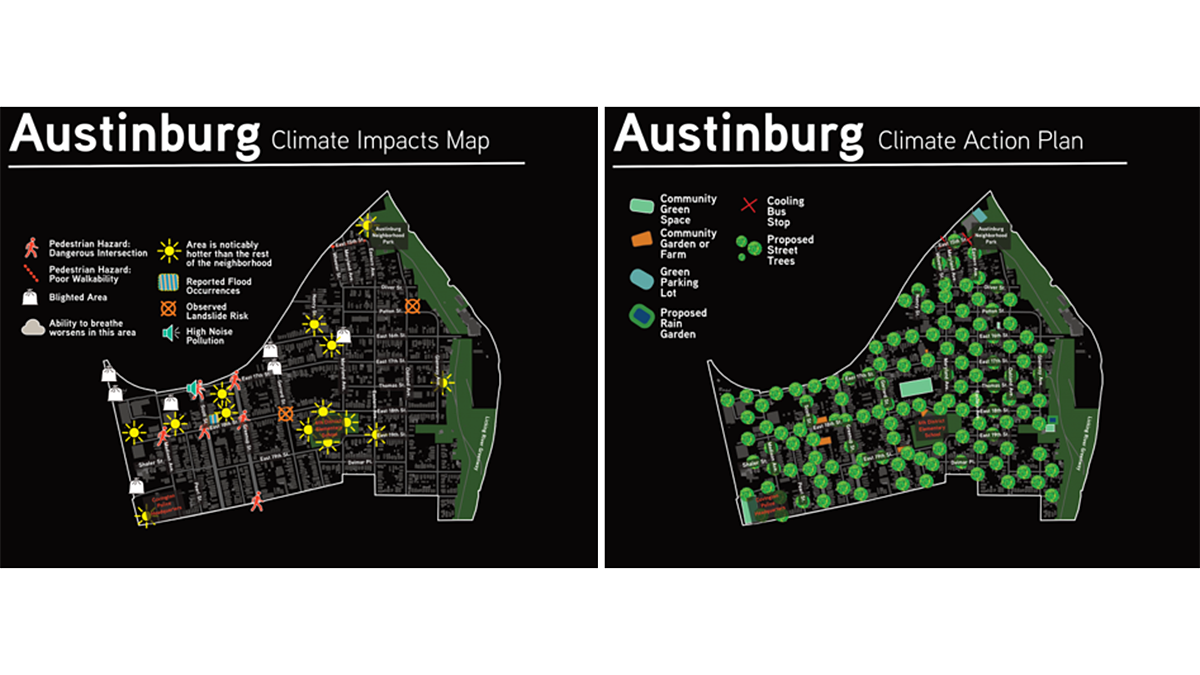Editors’ Highlights are summaries of recent papers by AGU’s journal editors.
Source: Community Science Exchange
Climate Safe Neighborhoods (CSN) (a national effort by Groundwork USA) is a program that supports local communities in understanding their climate risk and providing input about vulnerabilities and solutions. Working with students, local universities and organizations, the CSN program (first started in Cincinnati) was extended to northern Kentucky.
A GIS-based dashboard was created to provide communities with access to data related to climate change and other social issues from health to demographics, together in one place. A climate vulnerability model (part of the dashboard) helped identify communities most in need in Kentucky – these neighborhoods were the focus of community workshops where residents learned about climate impacts and collaborated on potential solutions. Community partners helped with planning and running the workshops which included opportunities for residents to provide feedback through mapping activities – data which was added to the dashboard and later used to support climate solutions, such as climate advisory groups and tree plantings.
In their project report, Robles et al. [2025] outline the process and outcomes of the program which can serve as inspiration to others looking to support and collaborate with communities in becoming more resilient to climate impacts.
Citation: Robles, Z., et al. (2025), Climate Safe Neighborhoods: A community collaboration for a more climate-resilient future, Community Science Exchange, https://doi.org/10.1029/2024CSE000101. Published 7 February 2025.
—Kathryn Semmens, Deputy Editor, Community Science Exchange


